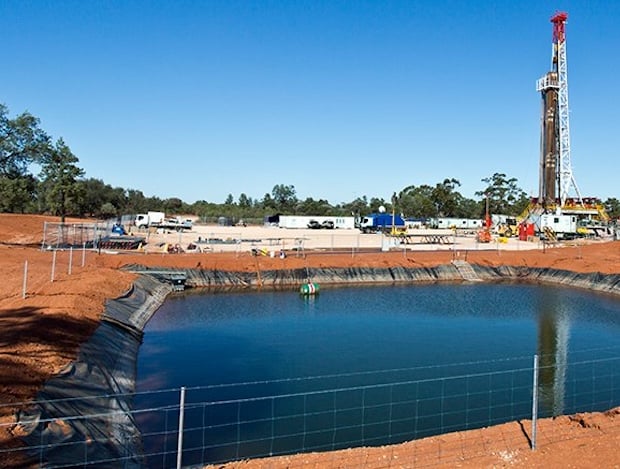No, Fracking Waste Will Not Power a Green Energy Revolution
Published Jul 16, 2024

New research suggests fracking waste could contain huge amounts of lithium, a main ingredient in batteries. But fracking will never be part of a clean energy future.
Editor’s Note: A version of this article originally appeared on the website of Food & Water Action (our affiliated organization) at an earlier date.
Seemingly out of nowhere, a new study has created a storm of headlines that sent an unusual message: Fracking waste could provide major benefits to the clean energy revolution.
Yes, you read that right. Headlines like “Fracking Produces a Resource Needed to Wean Us Off Fossil Fuels” and “Major Lithium Discovery in Fracking Wastewater Leaves the Left Facing EV ‘Irony’” drove home the message: The dirty, dangerous waste product created by fracking is actually good for us. Could it really be so?
The answer is, you guessed it, a resounding no. But it’s worth looking at what this study actually found — and why it is not likely to change much at all.
We Don’t Need Fracking Waste’s Lithium for a Clean Energy Revolution
Lithium is a key component in batteries for some electric cars and other clean energy components. The new research found that the wastewater from fracking in Pennsylvania could contain enough of the mineral to meet almost 40% of the current domestic consumption.
This news was music to the ears of the fracking industry groups and right-wing media outlets. But it’s not exactly new; the notion that fracking waste could be a source of lithium has circulated for years, and there is at least one company trying to put the idea to the test.
But currently, there is no way to recover lithium from fracking waste at the scale suggested by the new study; all the authors suggest is that it could be theoretically possible. Whether it’s even economically feasible remains under question.
And while headlines in recent years have sounded alarm bells about lithium supply and skyrocketing prices, this has not borne out. In fact, lithium is projected to be oversupplied in 2024 — many lithium mines are cutting back or even writing down their investments. Moreover, the development and production of non-lithium batteries are continuing to grow.
At the same time, we know that clean energy alone is not a panacea to the climate crisis. As we’ve seen in the past few years, renewable deployment and greenhouse gas emissions have grown. To save the climate, we need both renewables and an end to dirty energy — including a ban on fracking.
Fracking Waste Remains As Dangerous As Ever
This lithium recovery idea doesn’t mean fracking would be any less dangerous. A quick reminder: fracking involves blasting an unknown combination of chemicals and water at high pressure to recover oil or gas. Of the chemicals we do know, 14 are known or possible human carcinogens. Many have been linked to developmental and reproductive issues, too. Then, those chemicals,— along with a stew of naturally occurring contaminants, salts, metals, and radioactive material, return to the surface.
This so-called “produced water” is fracking waste, and it is a nightmare to deal with. In some cases, wastewater facilities try (and fail) to treat it; in other cases, it is injected underground. Either way, fracking waste can contaminate soil and water, and injection has been linked to earthquakes. And there are still substantial health and safety questions about the dangers of fracking waste.
Nationwide, the industry produces a trillion gallons of this toxic stew every year. Removing lithium would address none of the dangers, and the fracking industry would still have a massive toxic waste problem on its hands.
The Real Story: More Fracking Wells
The most alarming aspect of the study was raised by InsideClimateNews, which pointed out that the only way to extract this much lithium would be to frack a substantial number of new wells: “Because water production from typical wells in the Marcellus declines by 80 percent within the first two years of operation, the study concluded that extracting the volumes of lithium described in this analysis ‘would require continuous addition of new Marcellus wells to supplant older, less productive wells.’”
That would mean bringing fracking to parts of the state that have remained relatively unscathed. And it would mean growing the fracking industry at a time when it’s urgent we move off of fossil fuels altogether.
In other words, this study does not lay out a vision for fracking leading to a fossil fuel-free future — instead, collecting lithium from fracking waste would guarantee a massive amount of new fracking. And that means more air and water pollution, rising methane emissions, and putting more communities in harm’s way.
In short — no, fracking waste isn’t good for us.
Food & Water Watch cuts through industry hype and corporate B.S. Get our latest right in your inbox.
Enjoyed this article?
Sign up for updates.
TO TOP


